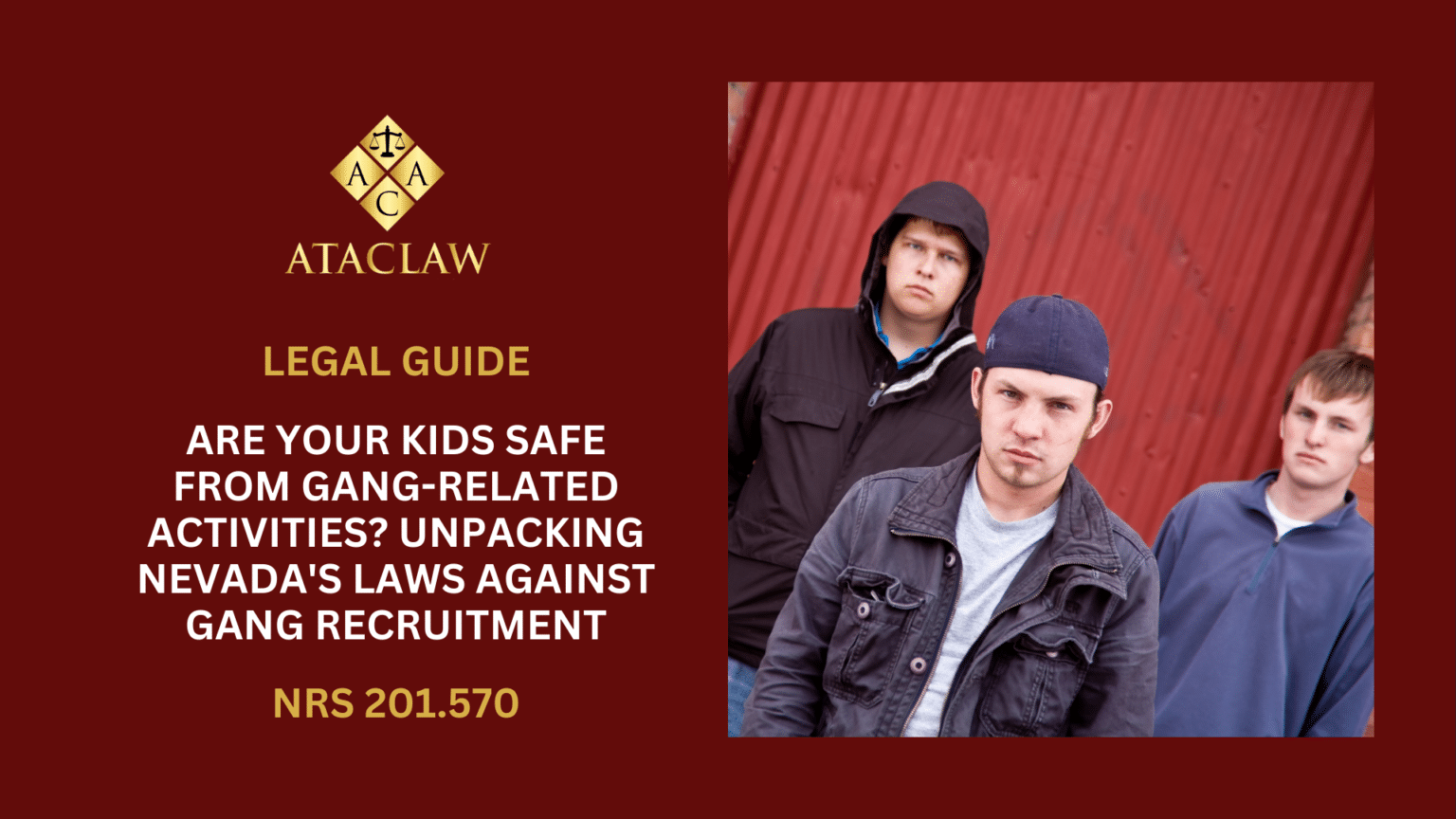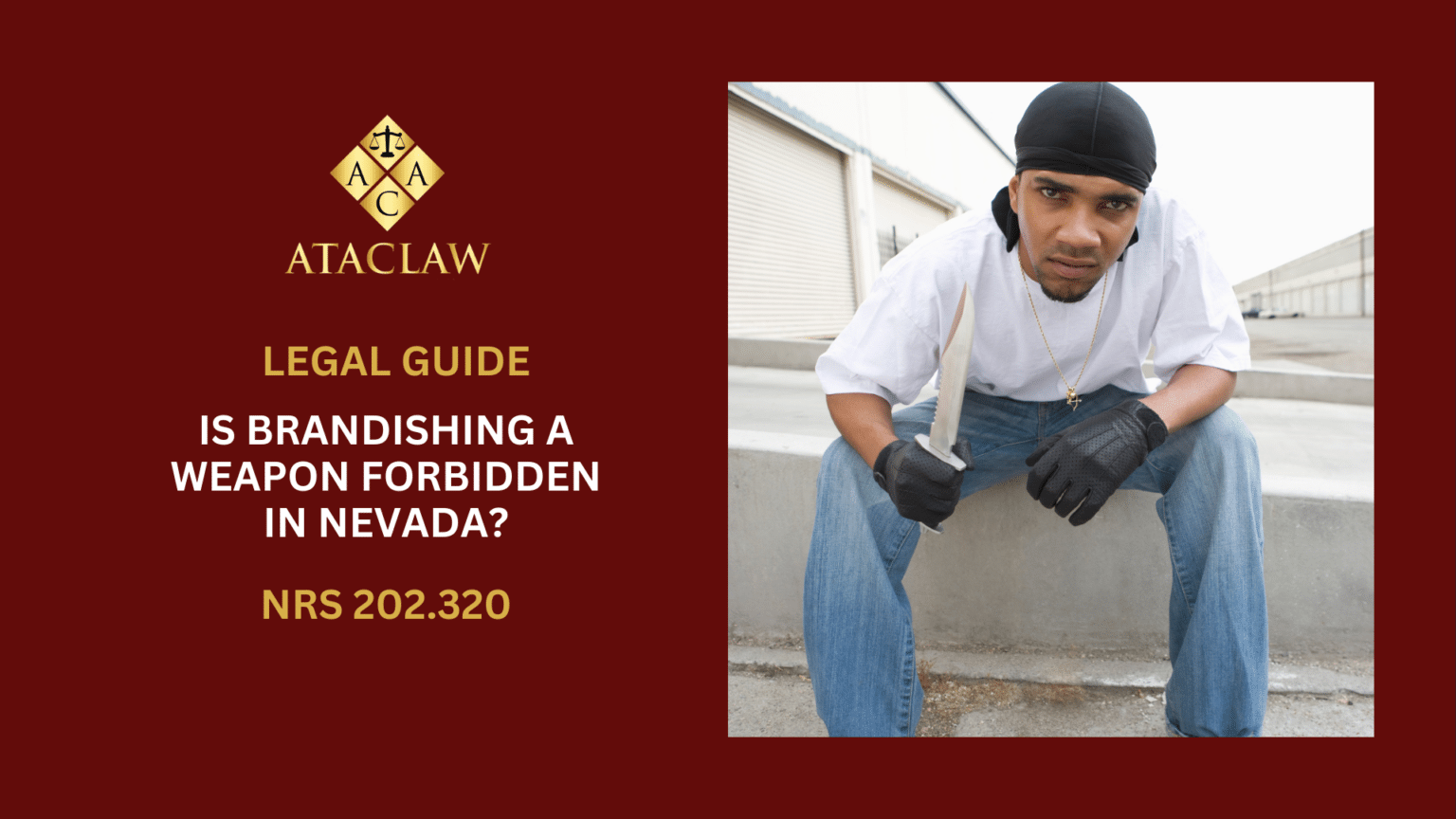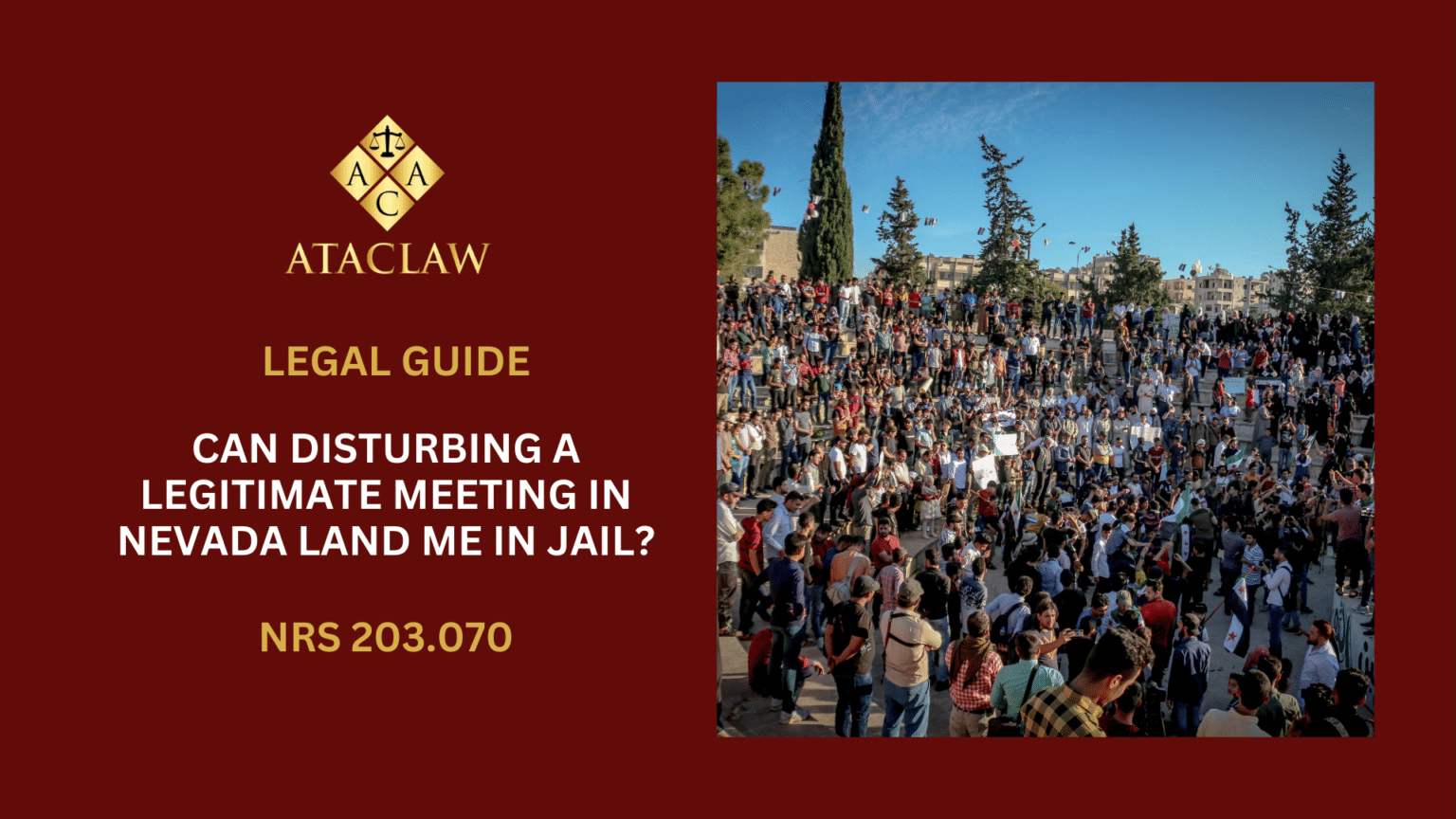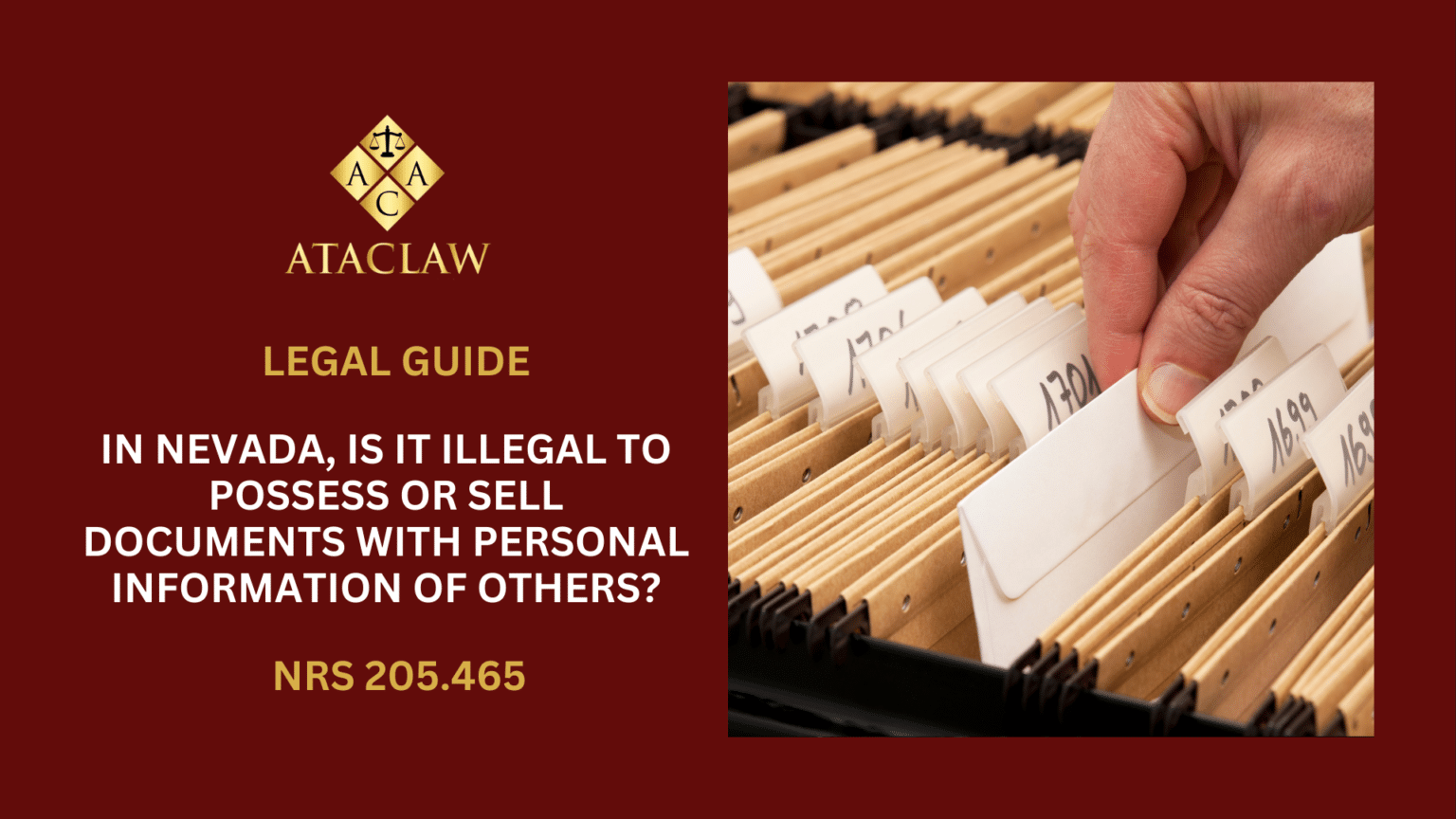Today, we dive into the realm of Nevada’s stance on a particularly sensitive issue: the recruitment of minors into criminal gangs. NRS 201.570 – a law that deals with the recruitment of young people into gangs, which can have major legal consequences for those involved. Under this law, an adult is barred from employing force or threats to incentivize a child to join, remain with, or rejoin a criminal gang. These actions constitute a serious offense that is treated as a category E felony in Nevada. This piece of legislation is crucial for the protection of our youth, aiming to keep them safe from being enticed into gang-related activities, a concern that affects families and communities statewide.
Is Recruiting Gang Members Illegal in Nevada?
In Nevada, whether recruiting gang members is considered a criminal act hinges on specific conditions being met. The legal framework for “criminal gang recruitment” includes two critical components:
- An adult must engage in either physical violence or property destruction—or threaten such actions—against any individual.
- The intent behind these actions or threats must be to persuade a minor under 18 years old to join, stay with, or return to a criminal gang.
Nevada authorities treat gang-related activities with high severity. Law enforcement personnel, including those from specialized units like the Las Vegas Metropolitan Police Department’s Gang Crimes Bureau, frequently employ undercover operations to penetrate gang groups and bolster public security. The efforts of these agencies are focused on dismantling gang operations through comprehensive sting operations and the deployment of informants.
What is a “Gang” defined under Nevada Law?
Nevada’s legal landscape has a specific set of criteria that distinguish a gathering of individuals as a criminal gang. To be legally recognized as such, a group must satisfy all of the following elements:
- Shared Identity: The group must have a collective name or an emblem that serves as its identity.
- Unified Conduct: There should be distinct behaviors and rituals that the group follows.
- Engagement in Criminal Activities: Committing felonies must be among the principal activities of the group.
Merely loitering with signs of potential minor misconduct, such as possessing spray paint near graffiti sites or involvement in petty theft, does not categorize a group as a criminal gang. A significant aspect is having an organized identity focused on conducting serious criminal acts.
The spectrum of crimes often associated with gang involvement varies greatly but includes:
- Perpetrating violence such as assaults with deadly weapons.
- Misuse and distribution of illegal substances.
- Conducting operations related to the trafficking of drugs.
- Executing acts of vandalism that lead to substantial property damage.
This delineation aids in pinpointing genuine gang activities, ensuring law enforcement and community efforts are accurately directed.
What Are the Consequences for Criminal Gang Recruitment According to NRS 201.570 in Nevada?
In Nevada, recruiting individuals into a criminal gang is treated as a Category E felony, reflecting the state’s commitment to combating gang-related activities. The penalties for this offense are devised to deter individuals from engaging in gang recruitment, with consequences that can significantly impact one’s freedom and financial standing.
Typically, those found guilty of this felony can expect:
- A sentence that might include probation alongside a suspended sentence, allowing the convicted individual a chance at rehabilitation.
- A possible incarceration period of up to 1 year, reflecting the seriousness of the offense.
However, for individuals with a more extensive criminal background, specifically those with two or more felony convictions, the repercussions become more severe. In such cases, the court is authorized to impose:
- A prison term ranging from 1 to 4 years within the confines of a Nevada State Prison, signifying a substantial increase in punishment severity.
- Fines that could reach up to $5,000, adding a significant financial burden to the punitive measures.
How Can You Defend Against Charges of Criminal Gang Recruitment in Nevada?
Defending against accusations of criminal gang recruitment under Nevada’s NRS 201.570 can be complex, but there are several established defenses that may apply. As experienced legal counsel for those accused of gang-related activities, the following defense strategies are commonly employed:
- Challenge the Existence of a Gang: Under Nevada’s strict legal definition, not all groups constitute a criminal gang. By demonstrating that the group in question doesn’t satisfy the state’s criteria for a gang, the charge of recruiting for gang membership could be invalidated, potentially leading to dismissal of the case.
- Refute Intent to Recruit: Nevada’s prosecutors face the intricate task of proving intent, an often subjective aspect of criminal cases. If the evidence regarding your alleged intent is shown to be weak or untrustworthy, it may prompt the district attorney to reconsider the viability of the charges. The absence of clear intent can significantly weaken the prosecution’s case.
- Expose False Accusations: The motivation behind an accuser’s allegations is crucial; if you have been wrongfully accused due to personal animosity or spite, highlighting this to the court can create enough doubt to challenge the credibility of the accusation. Proof of an ulterior motive in leveling charges against you serves to bolster your defense and may lead to the case being dismissed.
When addressing charges under NRS 201.570, having a strong defense strategy is essential. Demonstrating that the legal definition of a gang is not met, questioning the intent to recruit, or proving allegations are fabricated, can be decisive in achieving a favorable outcome in court.
Is It Possible to Seal My Case If Convicted of Criminal Gang Recruitment in Nevada?
Yes, convictions for criminal gang recruitment, categorized as Category E felonies in Nevada, can be sealed two years after the conclusion of the case. If the charges are dismissed, you have the immediate right to petition for a record seal.
At ATAC LAW, we prioritize your right to a fair defense and work tirelessly to achieve the most favorable outcome possible. If you or someone you know is facing allegations of criminal gang recruitment, understanding the nuances of NRS 201.570 is the first step toward a robust defense. Our team is equipped to navigate these complexities and advocate on your behalf.
For more insights and legal support regarding Nevada’s criminal gang recruitment laws or other legal inquiries, ATAC LAW is here to assist. Protecting your rights and ensuring justice is our paramount concern.
For further legal assistance and to discuss your case with an expert, don’t hesitate to contact ATAC LAW.




